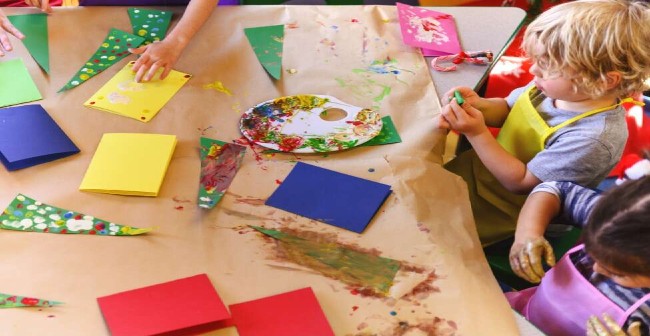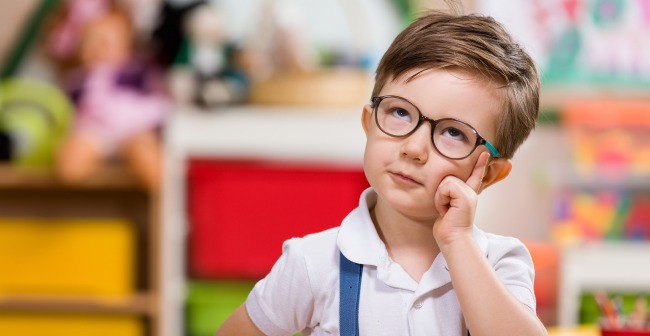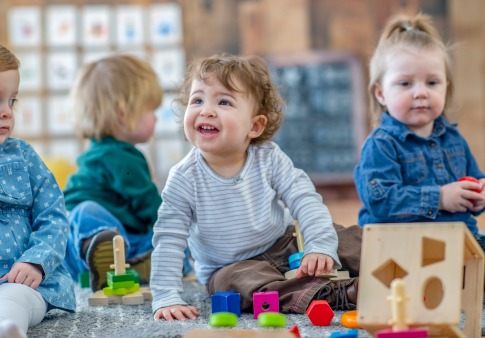The Reggio Emilia approach is a notable concept in early childhood education that emphasizes creativity, curiosity, and autonomous thought. At EtonHouse, we’ve adopted this cutting-edge strategy to give kids a stimulating atmosphere that encourages their innate curiosity and learning. A community of young learners who feel encouraged to express themselves, think critically, and connect meaningfully with the world around them is fostered by the Reggio Emilia approach, which centers the educational journey around each child.
The Reggio Emilia Approach: What Is It?
Educator Loris Malaguzzi created the Reggio Emilia method in Reggio Emilia, Italy, following World War II. It is predicated on the idea that kids are inherently inquisitive and able to create their own knowledge. Reggio Emilia promotes a flexible, project-based learning environment where kids learn via practical discovery and teamwork rather than adhering to a strict, predetermined curriculum.
By fostering an atmosphere where kids are respected as engaged contributors to their education, we at EtonHouse embody the Reggio Emilia concept. Here’s how this child-centered approach fosters creativity, self-reliance, and a love of learning.
1. Learning Centered Around the Child
Children are viewed as distinct persons with their own viewpoints and interests under the Reggio Emilia approach. Children’s curiosity drives learning, and teachers act as co-learners by observing, recording, and supporting the ideas of the students. At EtonHouse, we give kids the freedom to select activities that interest them, enabling them to delve deeply into topics they find fascinating. We foster a learning atmosphere where each child’s uniqueness and curiosity are fostered by honoring their choices and promoting discovery.
2. Learning by Discovery and Exploration
The core of the Reggio Emilia method is experiential learning. At EtonHouse, we create activities that encourage kids to explore, try new things, and pose inquiries. We turn our classrooms into vibrant places with interactive exhibits, natural materials, and thought-provoking questions that inspire kids to investigate their environment. Through building activities, painting projects, or nature hikes, kids are given the tools they need to find solutions, overcome obstacles, and cultivate a lifetime love of learning.
3. A Focus on Artistic Expression
Children have “a hundred languages”—a hundred methods to express themselves—from storytelling, music, dance, and painting and drawing, according to the Reggio Emilia method. EtonHouse supports these various ways of expressing themselves by providing kids with a variety of creative and tactile activities that enable them to communicate their feelings, ideas, and thoughts. Children are encouraged to utilize their imaginations freely in our classrooms thanks to the sensory play areas, art stations, and creative resources provided. This creative freedom fosters self-expression, confidence, and a love of learning.
4. Promoting Self-Reliant Thoughts
Encouraging children to think independently is a fundamental component of the Reggio Emilia philosophy. Teachers at EtonHouse foster a safe space where kids feel free to make choices, ask questions, and take ownership of their education. Our teachers support children’s development of resilience, critical thinking, and problem-solving skills by guiding rather than directing. They are better equipped to handle obstacles in the future with courage and an open mind because to this emphasis on autonomous thought.
5. Teachers as Co-Learners and Facilitators
Teachers that use the Reggio Emilia method are facilitators who watch, direct, and record each child’s learning process rather than merely teaching. Our teachers at EtonHouse are committed to this duty and actively participate in the children’s education. Teachers build a relationship with children that promotes respect for one another and a love of learning by listening to their inquiries, appreciating their opinions, and working together on projects. Children are inspired to try new things and feel secure in their skills because of this interaction.
6. Using Documentation as a Reflective and Growth Tool
At EtonHouse, we use documentation, a key component of the Reggio Emilia approach, to monitor and celebrate each child’s development. Teachers capture children’s learning journey in real time by using notebooks, display boards, and photographs to record their ideas, discussions, and creative endeavors. This lets kids reflect on their own development while also enabling parents to stay in touch with their child’s progress. Seeing their thoughts and achievements on display makes them feel proud and inspires them to learn more.
7. Establishing a Community of Collaborators
A strong feeling of community is emphasized by the Reggio Emilia approach, in which children, parents, and instructors collaborate on the educational process. At EtonHouse, we promote an open, welcoming environment and encourage family interaction. Parents are encouraged to work together on projects, take part in school functions, and offer their perspectives on their child’s educational path. By strengthening the ties between the family and the school, this collaboration makes sure that kids feel appreciated and supported by their whole community.
Why EtonHouse Values the Reggio Emilia Approach
At EtonHouse, we are able to go beyond conventional teaching methods and create a dynamic, responsive educational experience by implementing the Reggio Emilia approach. By encouraging self-expression, creativity, and independent thought, we provide kids the skills they need to thrive in a world that is constantly changing. In addition to preparing kids academically, this method helps them develop traits like resilience, empathy, and adaptability—qualities that are critical for success in the real world.
Conclusion
EtonHouse’s Reggio Emilia approach is a concept that values children as strong, imaginative beings who may direct their own education rather than just a curriculum. We create an atmosphere where each child’s potential can be realized by encouraging a love of exploration and independent thought. Our goal at EtonHouse is to raise a new generation of self-assured, kind, and curious students who are ready to face the future with purpose and excitement.



